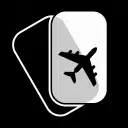Understanding Aircraft Leasing and Aircraft Charter
When deciding how to fly private, jet ownership can be a viable option for individuals and companies that fly more than 300 hours a year. At this rate, the flexibility and added convenience of a corporate jet can compensate for the initial cost and ongoing expense of maintaining the aircraft. But as with every important decision, there are a few important things to consider before purchasing a private aircraft.
For individuals or organizations that fly less than 300 hours a year, private jet ownership can become a financial burden if the costs of aircraft maintenance outweigh the benefits of ownership. When this happens, aircraft owners have one of two options: either sell the jet or lease their aircraft through a charter operator.
Many individuals and corporations elect to “charter out” their aircraft rather than to sell to retain the benefits of jet ownership. This way, they can own and operate their aircraft whenever they like and still offset some of the costs of jet ownership. This may seem like an easy fix to a complicated problem but there are still a few strings attached to the ownership/leasing model.
Recently, the Federal Aviation Administration (FAA) imposed certain restrictions on aircraft owners regarding the leasing of their aircraft to charter operators. These set of regulations, called the A008, specifically limit the amount of operational control aircraft owners have over their jet aircraft.
Under A008, two different types of aircraft leasing agreements exist. A “wet lease” is defined as a leasing agreement in which an aircraft owner provides an entire aircraft with at least one crew member. A “dry lease” is a leasing agreement in which an aircraft owner provides an aircraft without any insurance, maintenance personnel or crew, including flight attendants.
The important thing to understand is that under a wet lease, the lessor maintains complete operational control over the aircraft. It is considered a FAR Part 135 violation for any aircraft owner to wet lease an aircraft to a charter operator. Under A008, the aircraft owner must dry lease his or her aircraft to a certified charter operator.
Once the aircraft owner dry leases his or her aircraft to a certified charter operator, he or she no longer has any operational control over the aircraft during any and all charter flights. It becomes the sole responsibility of the certified charter operator to ensure that every charter flight is conducted in strict accordance with FAR Part 135 regulations. Aircraft owners have no say in which crew, maintenance program or insurance plan are used during charter flights.
The reason the FAA has implemented these regulations is to ensure passenger safety by verifying that every charter flight is conducted by legitimate charter operators that adhere to FAR 135 regulations. Among other things, FAR 135 regulations ensure that flight crews are appropriately type-rated and that aircraft are properly maintained according to FAA standards.
When considering jet ownership, one important thing to consider is how much operational control is desired in the event an aircraft is leased to offset cost. If individuals or companies prefer to employ their own personal flight crew or maintenance personnel, they will need to keep their aircraft under a Part 91 certificate and forego the leasing option. The dry lease option is not really an option for those who wish to have full operational control over their aircraft at all times.
When all is said and done, private jet ownership is simply not the best option for individuals and companies who fly less than 300 hours a year. The best option for these private jet users is on-demand jet charter. Through on-demand jet charter, individuals and companies pay as they go for private jet flights, instead of paying for the ongoing expense of jet ownership.
In addition to the advantages in cost, on-demand jet charter service also grants individuals access to thousands of different private jet aircraft. Aircraft owners are limited by the range and performance capabilities of their private jet. For example, if an individual owns a Citation V light jet, this would not be the most appropriate aircraft for a long distance or large group flight. Instead, the aircraft owner would end up paying more for the added flight time.
By chartering a private jet through an on-demand charter service like Stratos Jet Charters, individuals and companies have access to safest and most highly-maintained aircraft that can meet the specific needs of their flight. They can then enjoy the convenience and comfort of a private aircraft without incurring the expense of jet ownership.
Are you ready to book your New York and Palm Springs charter flight yet?
Our friendly, expert air charter agents are here to answer questions or start your quote today. Don`t wait, call now and we'll get you on your way to your destination!
Call 888-593-9066










